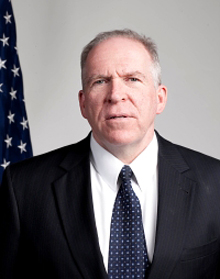Julian Moore
National Beat Reporter
Last week, President Obama authorized his CIA director appointee John Brennan to show Congress what legal grounds the White House is using to justify its drone strike campaign abroad. In countries such as Afghanistan, Iraq, Pakistan, Yemen, Libya, and Somalia, the United States has used unmanned drones that can fly at high altitudes to kill targeted enemy combatants from the safety of the skies. The government has promoted targeted drone strikes attacks as a way to leave a “light footprint,” allowing the President to withdraw troops from Afghanistan and Iraq while maintaining a steady military presence.
The policy behind allowing strikes, which reportedly began under President Bush in 2002 with the killing of a terror suspect in Yemen, has been shrouded in obscurity by both the Bush and Obama administrations. While Bush initiated drone strikes on targeted individuals connected to terror organizations, the program has flourished under Obama. In the first seven years of Bush’s presidency, the United States conducted a total of 11 drone strikes in Pakistan, kicking up to 35 in 2008. In his first two years as president, Obama shattered that record with 170 strikes by the end of 2010.
But a growing chorus of critics both inside and outside of Washington has long since questioned the unclear legal status of these operations. Policy analysts, civil liberties groups, and Congressmen and women from both sides of the aisle have expressed discomfort with how the scope of drone attacks has broadened.
For every military victory scored by the use of drone strikes, it seems another legal (or at least moral) problem is born. At the heart of the debate are a number of questions: can the president order strikes in countries with which United States is not engaged in any type of war, such as Yemen and Somalia? If so, whom can he or she target, and who else decides who is on that list? When in September 2011 the Yemeni-American imam Anwar al-Awlaki was killed by U.S. drone strikes, another, more grave question came to light: may the president assassinate U.S. citizens abroad without any sort of trial?
Anwar al-Awlaki was born in New Mexico in 1978 before moving to Yemen, and received an undergraduate degree from Colorado State University, where he was a member of the Muslim Student Association. After visiting a war-ravaged Afghanistan in 1993, Al-Awlaki began seeking justice for Muslims under attack around the world, but maintained an image as a moderate after the attacks on 9/11.
After bouncing between the United States and Yemen for years, Al-Awlaki finally settled in Yemen and began a series of web videos appealing to young Muslim men to fight against global oppressors of Islam in their home countries, including the United States. After the 2009 “Christmas underwear bomber” Omar Faruk Abdulmutallab was linked to Al-Awlaki, the latter became a target of the U.S. government and was put under surveillance for months. Finally, in the fall of 2011, he was killed by a U.S.-operated aerial missile in Yemen. After his death, Senators such as Chuck Grassley questioned the wisdom of drone strikes over nations which are, according to the government, allies in the war on terror.
Another question central to the drone debate is merely their effectiveness. A multiplicity of studies and reports have cast varying figures on how many people the U.S. unmanned aircraft strikes have killed, including how many civilians have died. Casualty estimates in countries like Pakistan alone range from 1,956 to 3,284 since 2004. Likewise, a study conducted by researchers at Stanford claimed for every terrorist killed by U.S. drones, an astronomical 49 civilians are killed while the government has put the civilian death rate near 40 percent.
Those who feared a draconian rationale were not assuaged when news broke in late 2012 that Awlaki’s 16-year-old son had also been killed in a separate drone attack. When asked how the White House justified killing the child of a terrorist, former Obama Press Secretary Robert Gibbs told ABC’s “This Week,” “I would suggest that you should have a far more responsible father if they are truly concerned about the well being of their children.”
Photo Courtesy of Samantha Appleton











